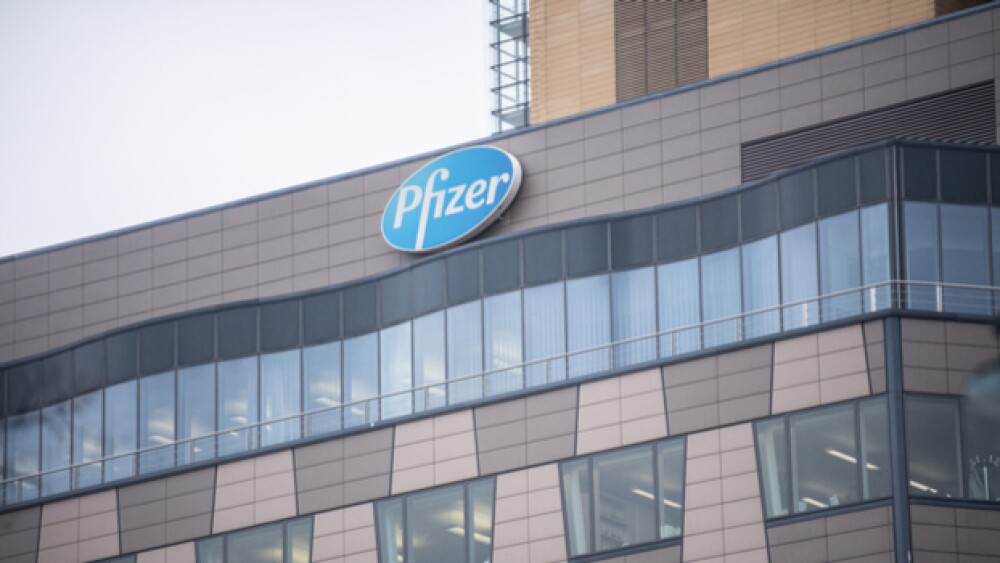Only a few weeks after Concerto HealthAI inked a deal with Bristol-Myers Squibb, it has signed a similar deal with Pfizer.
Cineberg / Shutterstock.com
Only a few weeks after Concerto HealthAI inked a deal with Bristol-Myers Squibb, it has signed a similar deal with Pfizer. The commonality is Concerto focuses on oncology-specific Real-World Data (RWD) and advanced AI for Real-World Evidence (RWE) generation, an area of increased interest for biopharma companies.
Concerto HealthAI will collaborate with Pfizer on Precision Oncology using Concerto’s eurekaHealth platform, artificial intelligence (AI) models and Real World Clinical electronic Medical Record (EMR) and healthcare claims. They will use data from clinical medical practices that participate in the American Society of Clinical Oncology’s CancerLinQ initiative and others throughout the U.S.
Concerto has an exclusive license to utilize data from CancerLinQ, which might explain why big pharma companies are so eager to work with Concerto. But Concerto’s data access isn’t solely with CancerLinQ but has access to numerous other real-world sources.
“Pfizer believes real-world data have tremendous potential to inform how we develop and use medicines to improve patient outcomes,” stated Chris Boshoff, Chief Development Officer, Oncology, Pfizer Global Product Development. “We are pleased to work with Concerto HealthAI—to accelerate insights and outcomes studies that may lead to a more comprehensive understanding of patients’ experience with our medicines.”
On January 28, the U.S. Food and Drug Administration (FDA) Commissioner Scott Gottlieb laid out the FDA’s new framework for dealing with RWE and RWD. RWE and RWD relate to the collection of information about a drug’s safety and efficacy outside the structure of a clinical trial. They are typically collected from electronic health records (EHR), laboratory tests, wearable devices, insurance claims, and potentially even social media.
At his presentation before the Bipartisan Policy Center, Gottlieb said the FDA’s guidance on this was not an indictment of the randomized controlled clinical trial. “It’s a recognition that new approaches and technologies can help expand the sources of evidence that we can use to make more reliable treatment decisions. And it’s a recognition that this evidence base can continue to build and improve throughout the therapeutic life of an FDA approved drug or medical device.”
The FDA framework and the 21st Century Cures Act accelerated the adoption of RWE-based approaches to clinical trials and post-approval studies.
In 2018, CancerLinQ teamed with Concerto HealthAI and Tempus to speed its joint research effort with the U.S. Food and Drug Administration (FDA)’s Center for Drug Evaluation and Research (CDER) to understand real-world use, tolerability, and effectiveness of immune checkpoint inhibitors. Concerto HealthAI and Tempus started analyzing a de-identified data set that CancerLinQ gave to the FDA, which represented more than 10,000 patients treated with checkpoint inhibitors in both approved and unapproved indications.
At the time, CancerLinQ’s chief executive officer, Cory Wiegert, stated, “These types of research efforts need to span across the cancer community because one organization cannot accomplish them alone. We are excited that Concerto HealthAI and Tempus are bringing their technical capacity and analytic expertise to this important effort in support of the FDA’s evaluation of these therapies outside of clinical trials.”
That initiative is looking at patients who have received checkpoint inhibitors including Genentech’s Tecentriq (atezolizumab), EMD Serono and Pfizer’s Bavencio (avelumab), AstraZeneca’s Imfinzi (durvalumab), Bristol-Myers Squibb’s Yervoy (ipilimumab) and Opdivo (nivolumab), or Merck’s Keytruda (pembrolizumab).





